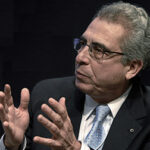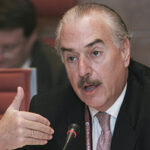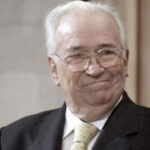Latin America is going through a very unique moment, both politically and economically. Despite differences between countries, it can be said in general terms that there has been progress in the region. However, there still remains a shortfall in key development areas such as education, technological investment, infrastructure and the distribution of wealth.
At the breakfast, the four former presidents analyzed the situation facing their countries and the region from three different angles: political stability, economic prosperity and legal security. On the positive side, everyone agreed on the democratic stability of the countries of the region, with the exception of Venezuela. A clear consolidation of democracy is lived, evident not only by the alternation in power, but by the fact that between 2009 and 2010 it is expected that 12 electoral processes in Latin America will be completed.
They have coincided in pointing out that, despite the resistance that has been shown in the region against the economic crisis that hit Europe and the United States (U.S.) and the macroeconomic prudence which has been maintained, there remain several challenges that hinder economic development. Among them, the problems of legal and citizenship security were discussed, fundamental for the development of a market economy. In this regard, and with particular reference to the problems of organized crime, drugs and arms trafficking, the participants expressed the need to seek new ways to ensure legal security, as applied tactics have not shown good results.
Another point on which the former presidents agreed was the need to continue structural reforms to facilitate social and economic development. The way in which Latin America has weathered the financial crisis, despite its strong ties with Europe, and especially with the U.S., is due largely to the reforms undertaken in many countries of the region during the nineties. However, this renewal process has been stopped and it is necessary to reintroduce it now.



